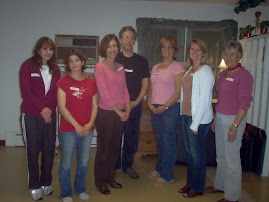 By Scott Anderson
By Scott Anderson
Biodynamics is a science of life forces- a recognition of basic principles at work in nature. Rudolf Steiner (1861-1925) is known as the "father of biodynamics". Steiner was born in Austria and lived most of his life in Germany. This man was involved in politics, agriculture, drama, teaching {he did over 6,000 lectures}, and spirituality; he was a real renaissance man.
In 1919, he founded the Waldorf School in Germany. Local branches exist in Princeton, NJ, and Kimberton, PA. These schools focus on many things: balancing artistic, academic, and practical work; educating the whole child, hand and heart as well as mind. Worldwide there are over 800 schools and over 150 in the U.S.-Steiner's insight and influence carries on today.
My first exposure to biodynamics was at the Nature Lyceum in Long Island, NY. I drove up to the building where a course in organics was being taught, and I was kind of confused by the grass parking lot with concrete bumpers and the conventional handicap parking sign in the lawn. I thought, "This is strange."
Later that morning the instructor asked if anyone noticed the parking lot? Well, that led into the topic of biodynamics. Apparently, for over three years now, the once gravel parking lot has been treated biodynamically. It has stayed green and healthy, including during the drought a few years ago and during the winter.
I've since gone on the Internet to find that biodynamics is huge in the organic world. A lot of vineyards in California, and worldwide, are growing biodynamically without the use of pesticides and chemical fertilizers. Biodynamics embraces the concept that all living things are believed to be open to and formed by influences from the depths of the earth to the heights of the heavens. Cosmic rhythms contribute to the life, growth, and form of all living things on earth.
It also recognizes that the soil itself is alive. Its vitality supports and affects the quality and health of plants that grow in it. The health of the soil is build and supported through the use of natural and organic components, especially composting, and the use of various biodynamic "preps" developed by Steiner.
From what I've read, plants grown in this manner have shown more resistance to insects and disease, both of which are triggered by disorder. Healthy "life force energies" are natural repellents. It is said that destructive insects will avoid healthy systems, as the insects are not programmed to go there. Sir Albert Howard, author of The Soil and Health said, "healthy soils = healthy plants= healthy people."
Biodynamics and the Rock Dust Phenomenon
Our soils are generally devoid of trace mineral through years of cropping and/or mowing. The addition of rock dust minerals along with organic fertilizers or compost have shown to improve the health of numerous crops, horticultural plants, and turf by feeding the soil. Soil bacteria feed on natural volcanic rock dust, stimulating the "soil food web" and improving many things: the soil structure, disease suppression, water holding capacity, natural aeration, thatch decomposition, nitrogen fixation from the atmosphere, and nutrient cycling. All the while, 70 minerals are added to the soil. Rock dust minerals are also used in bioremediation of contaminated soils.
Certain volcanic rock dust minerals (para magnetic) are said to attract and build "life force energies". I recently read that Great Britain just approved money for the study of this phenomenon. Here at home, a Delaware Valley College student under my employ grew bentgrass in the greenhouse with about 10 other treatments. The results surprised everyone. Rudolph Steiner's "horn manure biodynamic prep" and volcanic rock dust came in first and second in germination trials by as much as two days.
I realize that some of these theories may seem strange. To put it in perspective, I was asked, "can you see gravity?" Well, my response is, "do you have to see life force energies?" We must all find our own truth.
Look into it. I think it's too widespread to be ignored.
About the Author: Scott Anderson is an instructor at Seeds for Change Wellness Community and has been the golf course superintendent at Huntingdon Valley Country Club since 1983. Scott has been utilizing organics in building sustainable soils, while reducing the need for adding synthetic products.
A graduate of the Green Gorillas Organic Program at the Nature Lyceum in NY, Scott’s practical experience and concerns for the environment provide a new perspective as well as useable knowledge on how to bring your home care program into balance with nature.
.
Wednesday, March 12, 2008
Now for Something Different: Biodynamics
Posted by
Susan & Scott Anderson
at
11:55 AM
![]()
![]()
Labels: Biodynamics, Environment, Gardening
Subscribe to:
Post Comments (Atom)






No comments:
Post a Comment